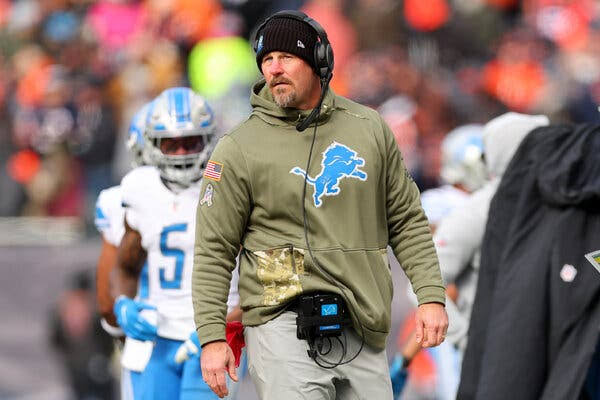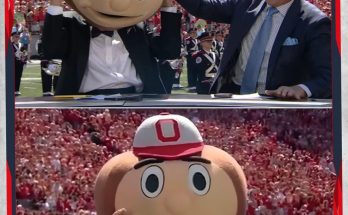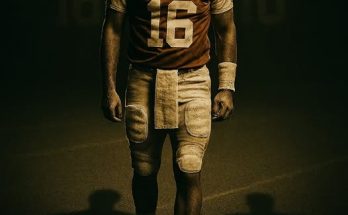That a former Detroit Lions All‑Pro is still unsigned this late into the offseason is both surprising and shortsighted. When you look closely, one name leaps out—not for flash or hype, but for consistent excellence and leadership on special teams and defense: Jalen Reeves‑Maybin. Just two years ago, he was tied for the NFL lead in special‑teams tackles, earning a second‑team All‑Pro nod. He added fake‑punt conversions, both runs and passes, displaying versatility and football IQ. Before suffering a neck injury in 2024, Reeves‑Maybin was not merely a core special‑teams ace; he was captain, a voted leader and even elected NFLPA president in 2024 (.
It’s baffling that a veteran with that résumé remains a free agent. Coaches around the league prize players who bring effort, grit and consistency on coverage units. And Reeves‑Maybin delivers all three. He spent eight seasons in the NFL—seven in Detroit and one in Houston—with 221 career tackles, most occurring on special teams. Those are not just statistics; they reflect a player who constantly fights for every inch, giving coaches dependable production and younger teammates a standard of excellence to emulate.
Yes, the neck injury is a real concern. He missed seven games, then returned for three, but teams worry about long‑term health and availability. Yet he recently turned 30—far from washed-up in NFL terms, especially for special‑teams standouts. His status as a team captain and NFLPA president shows other teams he’s respected in the locker room and upholds league integrity. That intangible leadership is exactly what training camps are built around—mentors who bind together the vets and rookies heading into a long season.
Take Detroit itself: they released Reeves‑Maybin as a cost-saving move freeing up roughly $2 million in cap space . Front offices often prioritize youth and upside at the linebacker positions—names like Alex Anzalone, Jack Campbell, Derrick Barnes, Malcolm Rodriguez, Trevor Nowaske and Grant Stuard are lining up. But competition and attrition will catch up to them, and depth is always at a premium come Week 5, Week 10 and beyond. You’d forgive Detroit for sniffing around, especially since Reeves‑Maybin knows the system and worked under last year’s LB coach—now the defensive coordinator .
Elsewhere, every team needs special‑teams warriors. In training camp, kicking competitions and depth charts are fluid. A guy who can cover kicks, organize coverage units, and step in as a backup linebacker is a no‑brainer to bring in. It bears repeating: it’s “objectively wild” Reeves‑Maybin is still unemployed .
Compare him to another former Lion in the periphery—Michael Badgley, the kicker: yes, he’s unemployed and has a solid field‑goal resume, but kickers are one‑dimensional. Reeves‑Maybin brings leadership, special‑teams dominance, occasional defensive snaps and championship attitude. That combination is rare and valuable.
And where would you put your money? A veteran linebacker on special teams helps your roster’s foundation. The average NFL season is brutal; injuries mount, performance evolves. Coaches love having players who understand expectations, know the system, and can plug multiple roles. That’s exactly what Reeves‑Maybin offers.
His best seasons were not that long ago. Just two years back, he tied for the offensive lead in special‑teams tackles. Those plays don’t show up on highlight reels for fans, but coaches see them. He was instrumental in fake‑punt conversions, tying together creativity and execution. That blend of flash and hard work makes him unique—something beyond a single metric.
We should also consider the leadership he carried. Voted team captain and NFLPA president? That’s rarefied air for a special‑teams player. That kind of internal leadership helps shape culture in the locker room—especially important on young, hot teams trying to make deeper playoff runs.
Detroit, especially, is in this exact spot in 2025. Coming off a 15‑2 season and a divisional playoff loss, they want the final pieces to push deeper. Their linebacking unit looks deep on paper, but injuries and cap constraints demand flexibility. They could easily bring in someone like Reeves‑Maybin on a veteran minimum deal to challenge for a 53‑man spot and possibly provide insurance if someone goes down.
Other teams with cap space are in similar positions. Special teams and backup linebackers churn every camp, and someone like Reeves‑Maybin can be a training‑camp invite, competing for roster or practice‑squad depth. His price is low, upside immediate, and risk minimal. He’s been productive, he’s a leader, and he’s hungry.
Think of it like this: you’re a head coach or roster manager walking in to set up camp. You value culture, effort, reliability. You want players who say the right things in meetings and walk the walk on film and grass. Reeves‑Maybin checks those boxes every time. You bring him in for evaluation, he pushes, competes, probably makes the team. If not, he lands on a practice squad or becomes insurance later. It’s a smart depth move and culture win.
Draft picks can’t replace leaders. Rookie linebackers may play later, but early in camp, they need direction. Special‑teams specialists set tone in practice—15‑yard gains blocked, sustained coverage across three phases. Reeves‑Maybin’s presence raises the group’s overall standard.
Contrast that to veteran signings like Brandon Scherff at guard or Za’Darius Smith at edge—they’re splashier but more expensive and riskier. Reeves‑Maybin is bargain‑bin brilliance. He doesn’t cost a third‑round pick or big money, just a shot.
This talk circles back: “There’s no excuse for him not to be in a camp this summer” . That’s not hyperbole—it’s reality. We’ve seen fringe veterans stay unemployed through preseason cuts, only to be wrong at missing camp. Coaches know this; missing someone of Reeves‑Maybin’s caliber is missing a chance to upgrade culture and special‑teams consistency.
League‑wide, coaches remark on the special‑teams turnover. Each camp, core performers change. A single player like Reeves‑Maybin—proven, reliable—can anchor a unit. He’s been there, he’s done that, he’s earned coach trust. So why isn’t he on the field?
One answer: possibly his neck injury left medical red flags. Teams could be wary. But he returned last year—capable of playing. He’s passed tests before. Try him out in camp, mitigate risk, pay veteran minimum. If he shows health and play, lock him. If not, part ways before roster deadlines. That’s smart personnel work, low risk, high upside.
The irony is that while Reeves‑Maybin waits on a phone call, teams scramble for bodies in training camp. Some bring in raw rookies; others recycle castoffs. Meanwhile, here’s a player who’s been there, done that, in coverage and leadership roles. That’s value you don’t draft.
Detroit, with a new defensive coordinator now familiar with him, and cap space near $40 million , would be remiss not to reach back in. The Lions know him, trust him. It’s a no‑brainer.
If not Detroit—and they initially moved on for cash—the next phone call should go league‑wide. Special‑teams priority, linebacker depth, special teams captain-archetype: those traits don’t come cheap via draft or free agency. Reeves‑Maybin offers them readily.
A training‑camp invite isn’t a roster guarantee—but it’s opportunity. Reeves‑Maybin deserves that chance. He’s earned it.
In summary, Jalen Reeves‑Maybin is that rare free agent who combines special‑teams excellence, leadership credibility, system familiarity, and affordability. That’s exactly the profile of a guy who should get invited to every camp that wants to compete in coverage grades and fourth‑quarter minutes under duress. At age 30, he’s not washed up; he’s seasoned and ready.
Teams: you might get high‑ceilers from draft day, but you win camps—and often, close games—with effort, discipline and leadership. Bring Reeves‑Maybin in. Give him the invite. The camp room, the rookies, the coaching staff, the cap—everyone benefits. There’s no downside, only potential. And really, with that résumé, it’s time someone gives him a microphone again.



